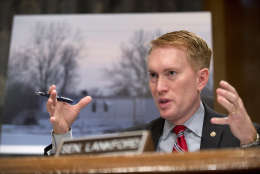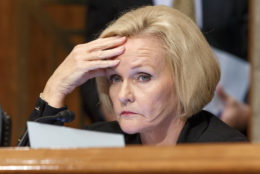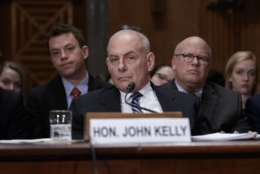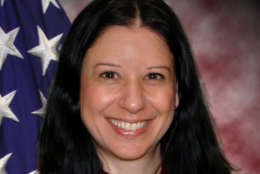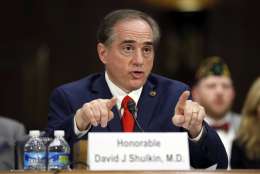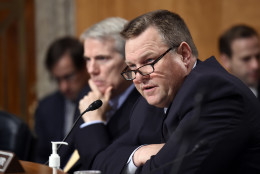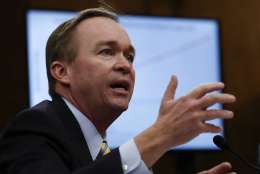Senate Homeland Security and Governmental Affairs Committee
-
Sen. James Lankford (R-Okla.) introduced new legislation that would increase the maximum VSIP from $25,000 to $40,000 for both federal civilian and defense employees.
September 29, 2017 -
Communication and transparency during the government reorganization process is going well for some, and not for others.
September 13, 2017 -
Sen. Ron Johnson (R-Wis.) asked the Office of Personnel Management to explain why members of Congress and their staff continue to receive an employer contribution towards their health insurance coverage.
August 17, 2017 -
The Senate Homeland Security and Government Affairs committee passed the TSP Modernization Act of 2017, along with a handful of other bills that could soon affect the lives and careers of the federal workforce.
July 27, 2017 -
Both Henry Kerner, the president's pick to be the U.S. Special Counsel at the Office of Special Counsel, and Claire Grady, the nominee to be the undersecretary for management at the Homeland Security Department, say they both share similar workforce priorities.
June 28, 2017 -
Agency leaders are reviewing tens of thousands of comments from their employees and the public on ways to make government more effective and efficient. In speaking with their workforces about their ideas, most leaders say the focus has generally been on how the agency can better deliver the mission and services to the public, not on forthcoming personnel cuts.
June 15, 2017 -
The president's 2018 budget proposal includes cuts to the Transportation Security Administration and grant programs for local law enforcement. But some senators say the funding increases at other parts of the Homeland Security Department come at the expense of valuable tools to respond to threats at United States ports of entry and smaller scale and local incidents.
June 06, 2017 -
Federal HR expert Jeff Neal applauds the efforts of lawmakers to investigate civil service reforms and calls for legislation that brings meaningful training for supervisors.
May 17, 2017 -
Congress is once again examining the results of the latest Federal Employee Viewpoint Survey. Lawmakers said they're encouraged by the progress the Homeland Security Department has made, despite its continued last-place ranking.
April 06, 2017 -
Sens. Claire McCaskill (D-Mo.), ranking member of the Homeland Security and Governmental Affairs Committee, and Tom Carper (D-Del.) and Reps. Jason Chaffetz (R-Utah), chairman of the Oversight and Government Reform Committee, and Elijah Cummings (D-Md.), ranking member of the committee, wrote separate letters to NARA and the White House about ensuring records are managed properly.
March 09, 2017 -
Amid reports that the White House is planning budget cuts at the Coast Guard, Transportation Security Administration and Federal Emergency Management Agency to pay for the President's border security and immigration policies, some senators are worried the Homeland Security Department will forget the lessons it's learned about risk-based management. They asked Elaine Duke, the nominee to be the DHS deputy secretary, about her approach to future budgetary decisions.
March 08, 2017 -
Both the Government Accountability Office and the department's inspector general say leadership at the Veterans Affairs Department is committed to removing VA health care from GAO's High-Risk List. But they've seen little concrete action beyond VA's promises of commitment.
February 20, 2017 -
The Senate Homeland Security and Governmental Affairs' federal workforce subcommittee said it's on a fact-finding mission this year. Subcommittee Chairman James Lankford (R-Okla.) said he wants to hear from federal managers about the existing authorities and processes that make their jobs more difficult.
February 09, 2017 -
Sens. Claire McCaskill (D-Mo.), ranking member of the Homeland Security and Governmental Affairs Committee, and John Tester (D-Mont.) wrote to Comptroller General Gene Dodaro on Feb. 6 asking for an analysis of what went right and what went wrong when DoD moved to the Office of Personnel Management’s Federal Investigative Service (FIS) nearly 12 years ago.
February 07, 2017 -
Rep. Mick Mulvaney (R-S.C.) offered his first insights into his management ideas during his two-committee marathon nomination hearings to be the next director of the Office of Management and Budget.
January 25, 2017

